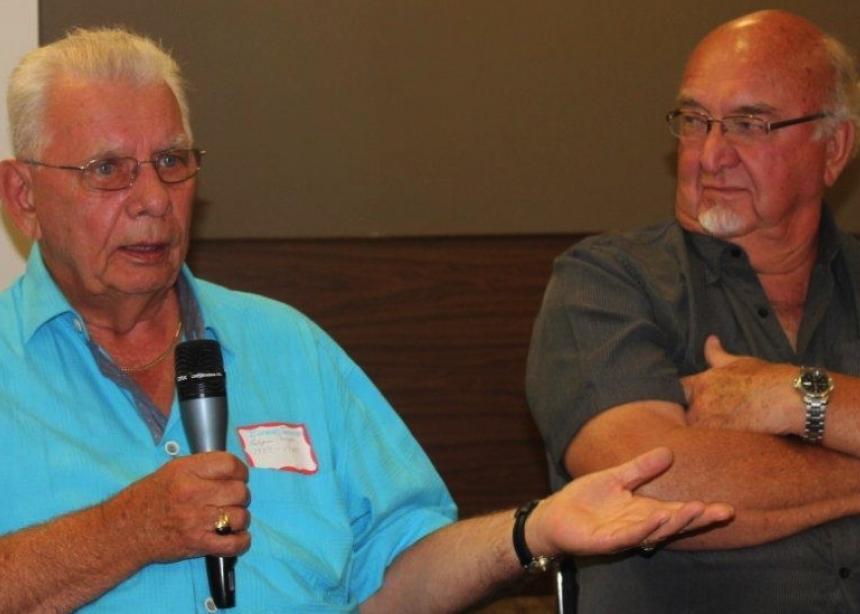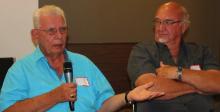Stories of how their life journeys were shaped by voluntary service filled the room at a reunion of Mennonite Central Committee (MCC) service workers who were part of the Pax program.
Among them was Abe Suderman of Parkhill, Ont., who began his two-year term with Pax in 1960. Pax, a Latin word for peace, was an MCC service program started in 1951 in the U.S. as an alternative service program for conscientious objectors. He was assigned to work with Congo Inland Missions during the Congo crisis in what is now Democratic Republic of the Congo.
“Thinking back, nothing could have prepared us for what we would encounter,” Suderman recalled. “People were dying because of starvation and needless killings. Just because you happened to be from the wrong tribe would make you a target.”
Suderman also faced personal death threats. “Looking down the wrong end of the barrel of a gun is very scary,” he said. “But thank God, I am here alive today.”
By the time Pax ended in 1975, nearly 1,200 people, mostly men, had supported humanitarian, agricultural and community-development projects in 40 countries. Just over 100 participants were Canadian.
Suderman was one of 15 Canadian Pax workers and MCC staff who had provided administrative support who gathered in Winnipeg for the Aug. 29, 2015, reunion organized by Arthur Driedger, Gerhard Neufeld and Henry Fast.
Suderman was attending Canadian Mennonite Bible College (now Canadian Mennonite University) in Winnipeg when he heard about Pax. Like other young men in the program, his experiences as a Pax worker deepened his commitment to peacebuilding.
Despite risks to personal safety, Suderman and others on his mission team ventured into the countryside to set up feeding stations for people who were homeless and without shelter. They also gave the locals agricultural and other supplies.
“We were credited with saving the lives of 250,000 to 300,000 people,” he said. “Do I feel richly blessed? Without a doubt.”
When he returned home, Suderman earned a master’s degree in social work, and established a treatment program for children and a counselling practice.
Over the years, he recognized that he was experiencing post-traumatic stress disorder and now plans to write a book about the Congo crisis and his personal experiences with trauma.
Gerhard Neufeld served in India from 1966-69. “My Pax experience has led me to the conviction that standing with the poor, be they in India or in Winnipeg, is not just humanitarian work—it is the gospel,” he said.
During a question period with Don Peters, executive director of MCC Canada, several alumni encouraged MCC to stand boldly as a peace witness in this world, even if there is a cost.
Peters said that although funding allocations for MCC’s three priorities—sustainable community development, disaster response, and justice and peacebuilding—are not equal, the three priorities are fully integrated in each program. “We state them as three priorities, but they are inseparable,” he said. “It is like having a stool with three legs.”
MCC’s motivation for doing this work has remained the same since the organization was founded in 1920. “We do this in the name of Christ,” said Peters. “That is foundational.”
See also “Pax program recognized by centre for global nonviolence”





Add new comment
Canadian Mennonite invites comments and encourages constructive discussion about our content. Actual full names (first and last) are required. Comments are moderated and may be edited. They will not appear online until approved and will be posted during business hours. Some comments may be reproduced in print.